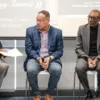Have a question about Philly’s neighborhoods or the systems that shape them? PlanPhilly reporters want to hear from you! Ask us a question or send us a story idea you think we should cover.
Calling it a “critical opportunity,” the Black Clergy of Philadelphia and Vicinity on Tuesday announced its support of the Sixers’ proposal to build a $1.55 billion arena in Center City.
The endorsement, codified in a memorandum of understanding, follows months of internal deliberations informed by conversations with the Sixers and community stakeholders, including opponents from Chinatown, which sits steps from where the team wants to build the arena, dubbed 76 Place.
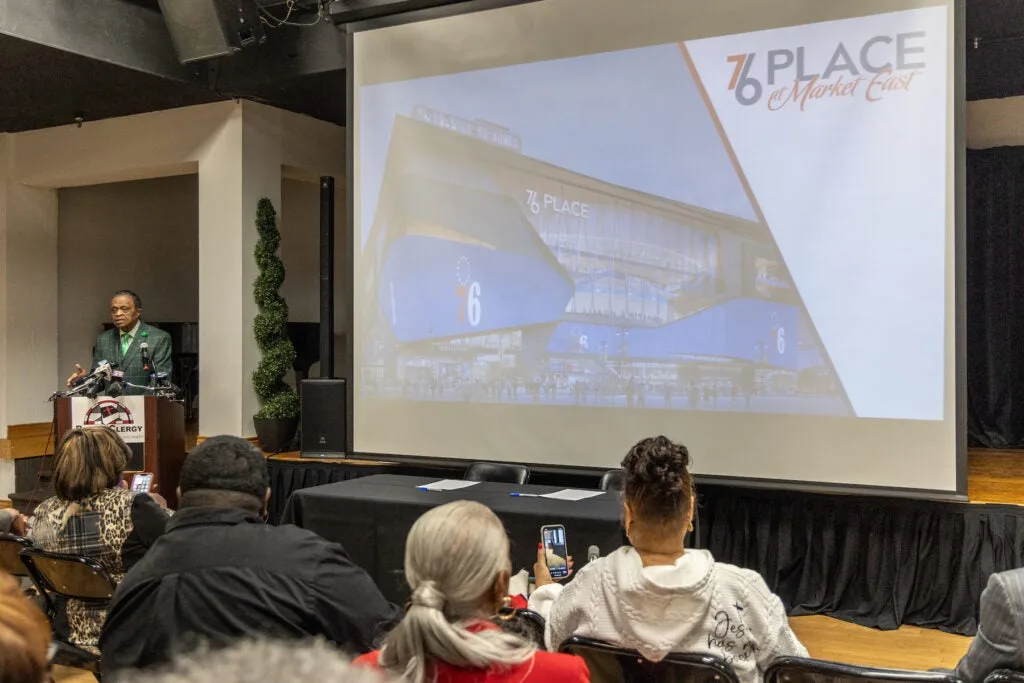
It comes as the Sixers work toward executing a community benefits agreement and securing zoning legislation, two hurdles the team needs to clear before demolition and construction can start at 11th and Market Streets, where part of the Fashion District shopping mall now stands.
“Very few projects portend such great benefits for so many people. I want to encourage all stakeholders, communities surrounding the arena, City Council, the next administration, and all interested and relevant parties, to come to the table,” said Rev. Robert Collier, president of the Black Clergy during a news conference inside the African American Museum in Philadelphia.
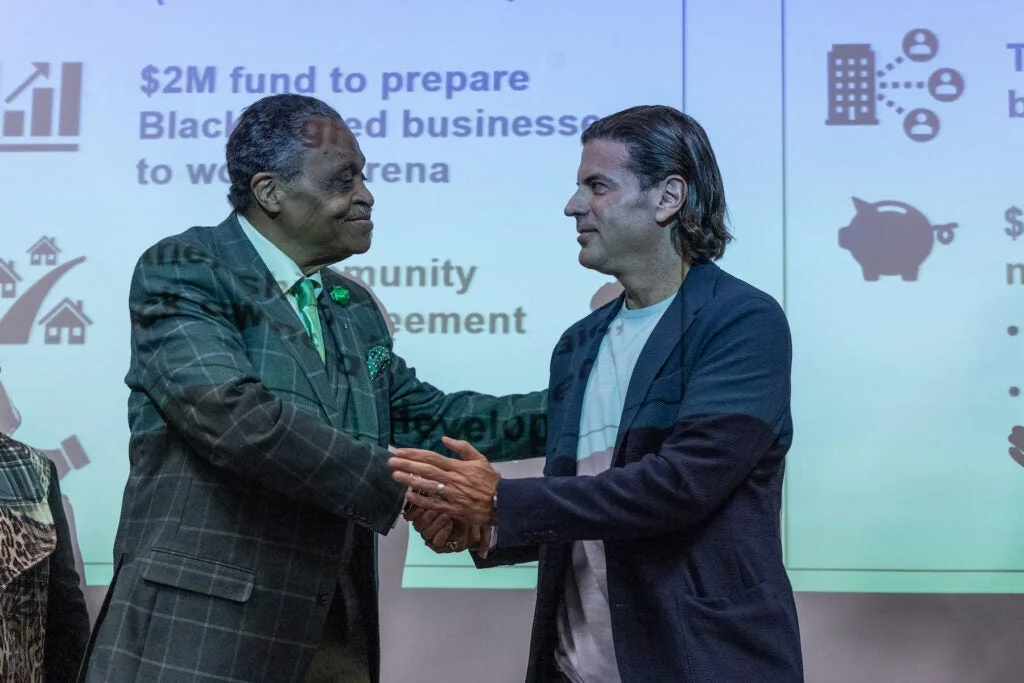
The Black Clergy, which represents hundreds of congregations in the area, is backing the controversial project because of the commitments the Sixers have made to the African American community, as well as the economic benefits it believes a downtown arena would deliver for the entire city, including Chinatown, said Collier.
The memorandum the group co-signed on Tuesday largely contains commitments the Sixers announced in March.
During a news conference held that month with nearly two dozen Black church leaders from the region, along with the African American Chamber of Commerce of PA, NJ & Delaware, the team said it would create a $2 million fund dedicated to preparing Black-owned businesses to be vendors, suppliers and concessionaires at 76 Place.
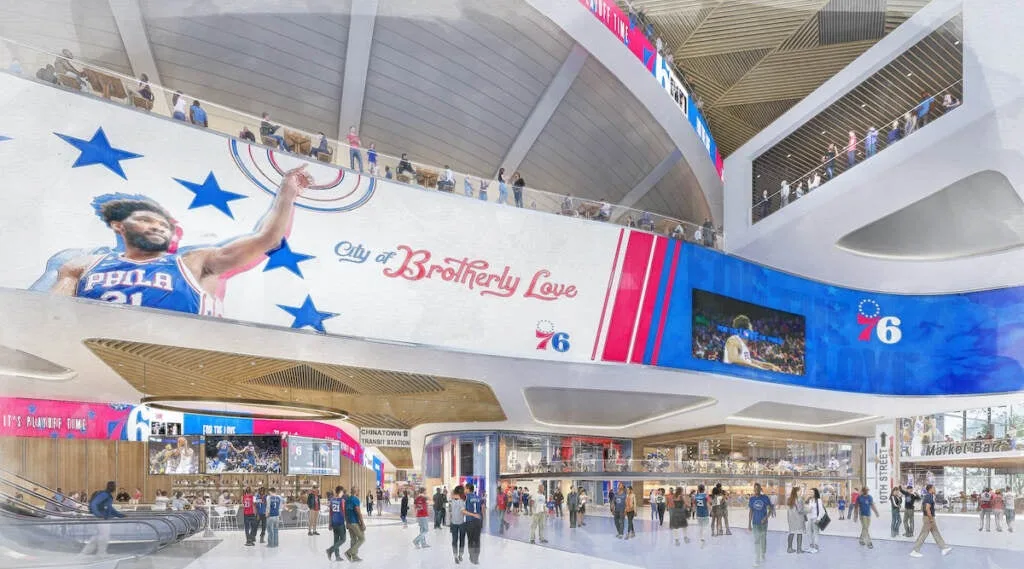
That money would be part of the $50 million the team has said it will invest in a community benefits agreement. These legally binding contracts are not uncommon, and typically specify what amenities and mitigations a real estate developer is required to provide in exchange for community support for a project.
The Sixers also want to have Black-owned businesses run 40% of the food, drink, and concession operations at the arena. The MOU additionally calls for the team to “grow a pipeline of Black talent and contractors” through a partnership with Everybody Builds, an organization rooted in diversifying Philadelphia’s construction industry, according to its website.
“Too often, Blacks have played on the court, but not at the cash register in the business of professional sports.[76 Place chairman] David Adelman and the 76ers are changing that,” Collier said.
David Gould, the Sixers’ Chief Diversity and Impact Officer, said the Black Clergy will be “holding us accountable for what we will be doing for the city and the Black community.”
“We are not in the business, and have no interest in making empty promises or commitments that we do not feel can be fulfilled. And so we are hopeful that this partnership creates a groundwork and sort of a blueprint for how we partner with other organizations and other communities,” Gould said.
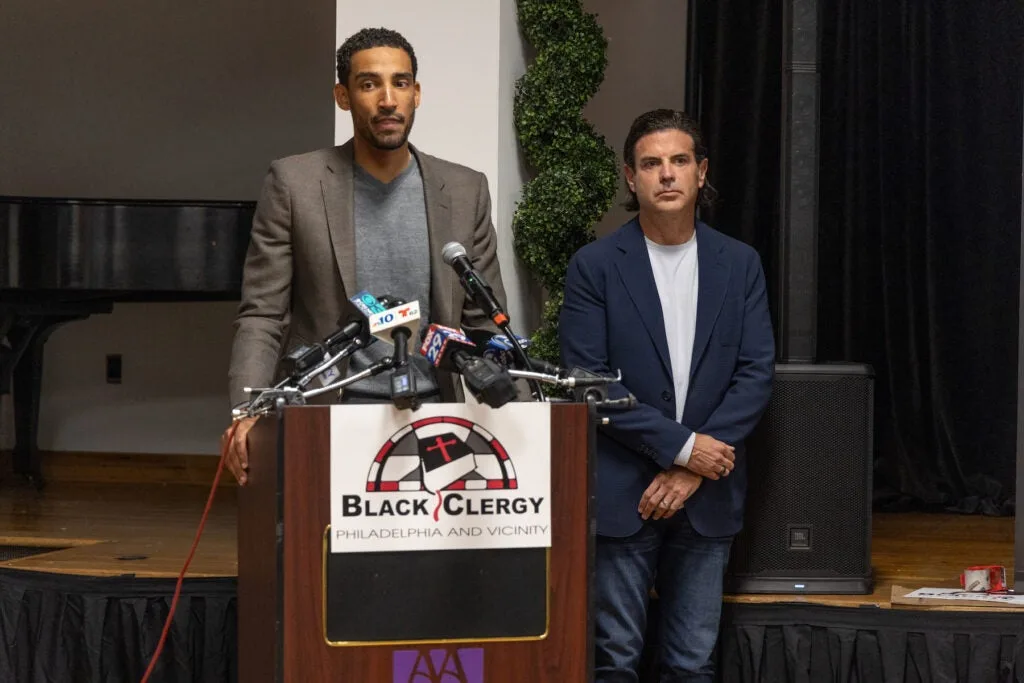
To date, the Sixers have struggled to win over Chinatown, a community that is overwhelmingly opposed to the team’s arena proposal. Residents and businesses view the project as an existential threat to the 150-year-old neighborhood, fearing it will destroy it by decreasing foot traffic and raising property values that will displace people.
After Tuesday’s news conference, Adelman said the dialogue with Chinatown has started to “ramp up,” and that he’s “pleased with the progress” the team is making with the community.
Some Chinatown activists don’t see a path forward, however.
“The Sixers only think of benefits in terms of money. That’s what developers care about. If you can’t put a dollar sign to it, it has no value,” said Debbie Wei, founder of Asian Americans United, one of the 40-plus groups part of the Save Chinatown Coalition
“How are they going to benefit from our history, our memories, our relationships? That’s what I want to know,” she added. “They can’t answer that because they’re going to destroy it.”
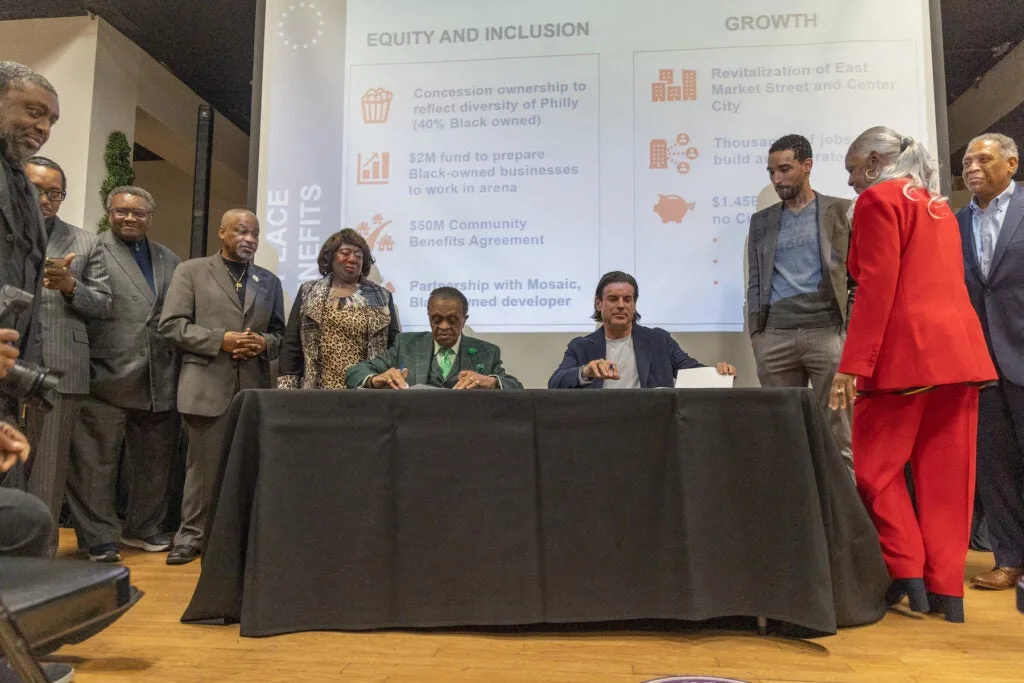
The Sixers hope to finalize the community benefits agreement sometime after the new year.
The team wants to open the arena in 2031, the year the team’s lease expires at the Wells Fargo Center in South Philadelphia.
WHYY is your source for fact-based, in-depth journalism and information. As a nonprofit organization, we rely on financial support from readers like you. Please give today.


